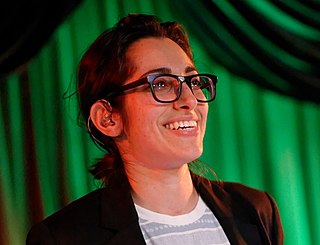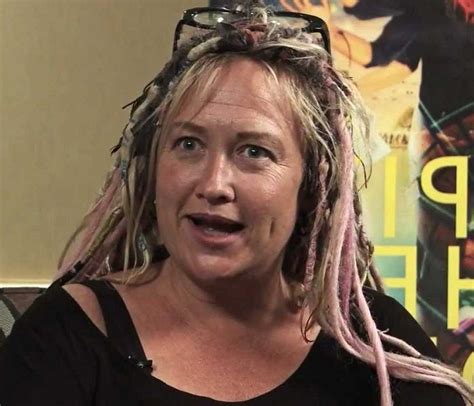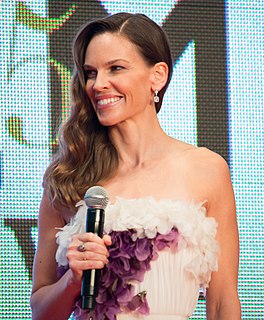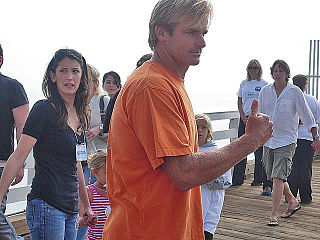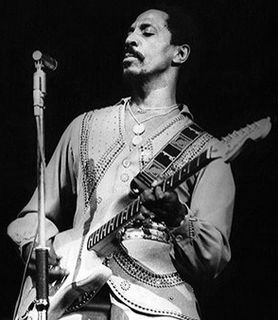A Quote by Gary Giddins
I'm a critic. That means you are a writer. So, yes, you have to make yourself an authority on whatever subject it's going to be. Music, movies, literature, whatever it's going to be, but what you really want to do is learn your trade by reading other writers. I think you have to read veraciously, especially people who have done what you have done to see how it's been done in the past; what works, what doesn't work.
Related Quotes
No matter where you are - whether you just won the lottery, or met the person of your dreams, or you're on stage and people are being supportive - whatever it is, you're still you. And whatever work you've done to be comfortable with yourself, you know, you're not really going to advance beyond that point unless you put in that work. There's no magic fix.
Criticism on my works is like this: you've worked hard all of your life, you went to Oxford, and you've done this and that, and you're an art critic. Your job is to unravel the "secret" or whatever, and you come across an entity like me. It's going to piss you off. Because there's no great secret, what you see is what you get, and anyone can understand what I'm doing. So, it's almost like I make this critic-person redundant, just by my attitude, and they resent me for that.
Read a lot. But read as a writer, to see how other writers are doing it. And make your knowledge of literature in English as deep and broad as you can. In workshops, writers are often told to read what is being written now, but if that is all you read, you are limiting yourself. You need to get a good overall sense of English literary history, so you can write out of that knowledge.
When you finish some film and you let it out there, it is completely out of your control. You've done what you've done, you haven't done what you haven't done, and now you are up for judgment. People can be all kinds of ruthless and they can be all kinds of wonderful. The joy in what I do is in the doing of it. And then there is the part where people are either going to see what I've offered and liked it or they are going to see what I've offered and wish they hadn't.
I hope one day it's not revolutionary just to be yourself, but I think that the work that's being done around identity and personhood is so important.I feel inspired by people around me who are part of this movement as well: Hari Nef and Rowan Blanchard and Willow Smith and these kids who are really not going to listen to anyone. "I'm just going to say whatever I feel. I'm going to be myself. And if you don't like it, then, you can go screw yourself."
I think whatever we've done as a band at The Clientele, we've done because it's so natural. Our "old" sound isn't really like any actual bands from old times. We take elements of past music styles and past sounds as a way to... this is going to sound very pretentious and perhaps overly thought-out, but as a way to strike chords of vague nostalgia, and strike chords of, "I've heard this before somewhere." That's what a lot of our music is about in terms of the words and ideas behind it, so we really use old sounds as a way to serve that agenda.
You're not always going to hit the bull's-eye. I'm going to make movies that work and I'm going to make movies that don't work, and that's just a part of being creative. Because really, I think if you're taking risks and you're pushing yourself and you're doing things that scare you, you are going to fall on your face, and it's not always going to work.
To mystify, in the active sense, is to befuddle, cloud, obscure, mask whatever is going on, whether this be experience, action, or process, or whatever is "the issue." It induces confusion in the sense that there is failure to see what is "really" being experienced, or being done, or going on, and failure to distinguish or discriminate the actual issues. This entails the substitution of false for true constructions of what is being experienced, being done (praxis), or going on (process), and the substitution of false issues for the actual issues.
I was really strict about my daughter sleeping in her own room, and now she's really independent and likes it that way. So I think for all new moms, I can totally see how you can get wrapped up in making your child 100% your time. But if you could just take 5% or 10% for yourself a day, it won't just make the difference in your confidence, but also your sanity. I think once you just set boundaries and how you're going to parent - everyone parents differently so I hate to be that person to tell them how anyone should parent, I think whatever works for you works.
I don't want to do only movies that I'm in. I definitely want to start to branch out and do TV and stuff that I'm not in and really make a good run at it as a production. I'm probably going to take a break from acting after a little while because I've enjoyed the developmental process so much. It helps you as an actor to learn story and to learn how to really nurture a script and work with a writer so you're not sitting there having to write it yourself and give notes.

